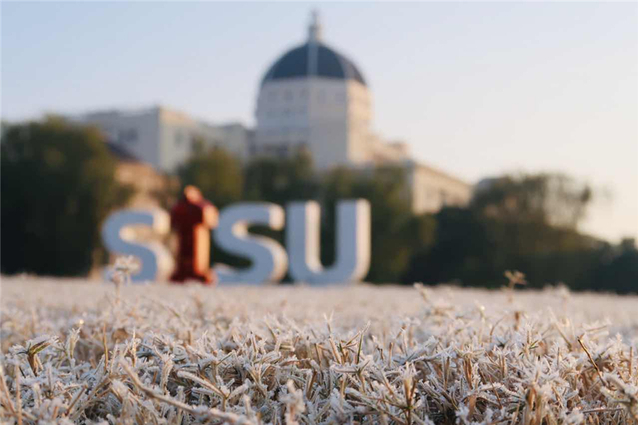
N |
early 100 higher education experts and more than 3,000 alumni of the Shanghai International Studies University celebrated the institute's 70th anniversary on Sunday and discussed its role in preparing students to become part of a global community.
In a symposium attended by 55 university presidents from around the world, Vice-Minister of Education Weng Tiehui emphasized the importance of international cooperation among universities as a means of equipping students with the knowledge and skills to address global problems such as climate change, disease control and public security.
Higher education institutes, with their unique openness and inclusiveness, should also shoulder the responsibility in promoting exchanges between civilizations through the exchange of faculties and students, says Weng, adding that China has since 1978 sent 5.85 million students abroad and received about the same number of overseas students.
Nearly 5,000 international students and scholars live and study together on the university's campuses with around 9,000 Chinese students, the ratio of which is one of the highest among universities in China.
According to the university, it has been providing opportunities for students to learn more about the world through internships at the United Nations and its affiliated agencies, exchange programs in the world's top universities and overseas seminars at Confucius Institutes.
Li Runqi, a junior of the university's Honors College, says he had the chance to study at Oxford during his first summer break. During last year's G20 Summit, he also visited Argentina with the university's global reporting program.
While in the South American country, he and his peers interviewed officials, scholars and artists and reported on a slew of topics, from the life of Chinese migrants in Argentina to the country's renowned writer Jorges Luis Borges to the local economic challenges and the melting of the Perito Moreno Glacier due to global warming.
Those overseas experiences broadened my horizons, boosted my confidence and helped me to plan my future, says Li, who is specializing in international organization. I will further my studies in international law and probably start a career in the Foreign Ministry or organizations such as the World Bank.
The university established the Honors College in 2016 to combine language education with other disciplines such as area studies, political science and translation and interpretation.
Li Yansong, president of SISU, says the university aims to cultivate professionals who are well-versed in Chinese policies and possess a global vision and high proficiency in foreign languages. This would in turn allow them to contribute to China's participation in global governance.
SISU intends to become a world-class university with a special expertise in area studies and global governance, he says. So much has changed over time, but our purpose has remained unchanged.
Last year, the Shanghai Academy of Global Governance and Area Studies was opened at the university. It attracted talent and resources across different departments so as to advance the university's research capabilities in foreign studies.
In the 2018-19 academic year, scholars at the school delivered over 200 policy advisories to the government, around 60 of which were adopted by the central government and more than 100 were adopted by provincial and municipal governments, according to the university.
In a world of ever-changing technology, we need to keep people and humanities at the center of education, says Florika Fink-Hooijer, director-general of the Directorate-General for Interpretation, European Commission. In a world where specialization has become the norm, it's equally important to foster multidisciplinary skills in order to prepare our students for a multifaceted world.
Jiang Feng, the university's Party secretary, says that competency in understanding the complexity and conflicts in the real world as well as striving for consensus through communication and cooperation is what students should possess after graduating from the school.
Zhu Gaofeng, former deputy dean of the Chinese Academy of Engineering and an alumnus of the French department, says what he had learned at the university was not limited to French but also the ability to learn independently.
Cultural studies, information science and neuroscience are closely linked with language. I hope SISU will push forward cross-disciplinary studies in these areas, Zhu says.



